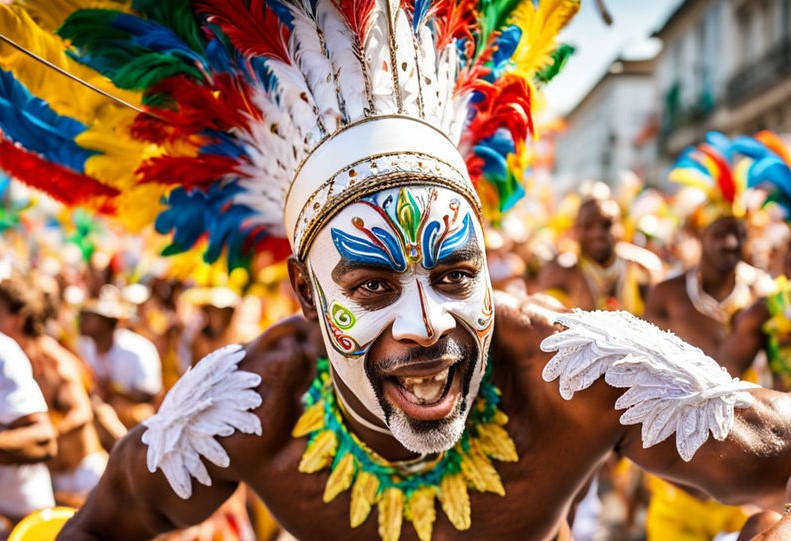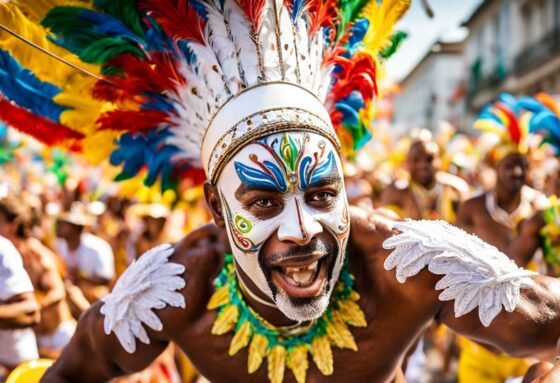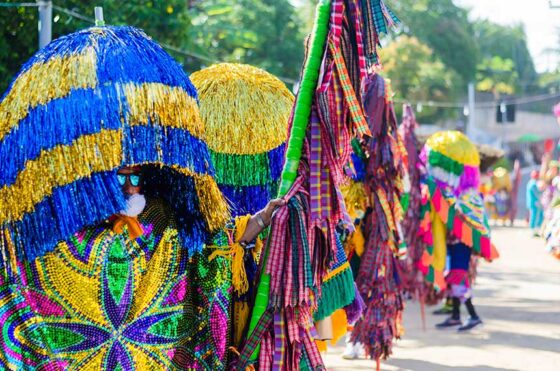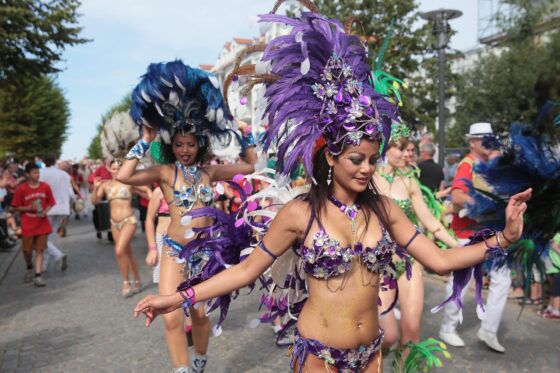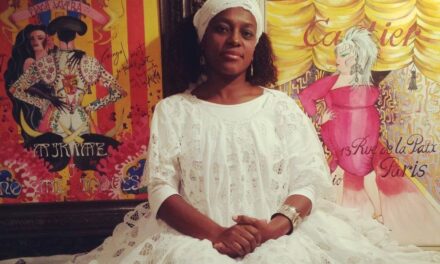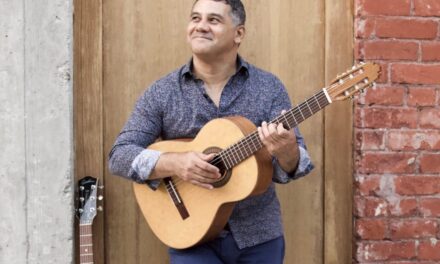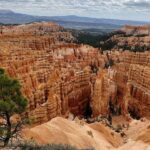Carnaval is an “Age-Old Festival” of merrymaking and still stands for freedom, irreverence and rule breaking. Carnival in the USA, Carnevale in Italy or Carnaval in Brazil, is the annual “Celebration of Life” that usually happens in February, sometimes in March, 40 days before Lent, a Catholic holiday. It took root in nearly every country colonized by the French, Spanish and the Portuguese as in Trinidad-Tobago, Mexico, Cuba, Venezuela and Brazil.
More recently the Brazilian Carnaval celebration has expanded for many cities around the globe, not only in Brazil. Cities such as London, Paris, Tokio, Toronto, New York, Miami, Houston, Los Angeles, San Francisco and San Diego among others have joined this tradition that involve not only music and dance, but various living expressions of cultural identity and full spectrum of cultural diversity.
The process of the evolution of carnival has brought with it the imagination and expectation that far exceeds the concept of street opera, and consolidates itself as the most creative and democratic Festival of Arts worldwide. From a musical standpoint, the literature and illustration of samba and other Brazilian rhythms actually provide Brazil a path to re-trace its discovery, its cycles of development and portrait, its flora and fauna, and its natural resources. The architectural skills are often present in the form of displaying carnival as a true social works of art; the photography, the cinema, scenic and graphical arts, all these creativity in a world of fantasy of “Rei Momo” (Momo King”)
The Roots and the Most Important Carnaval Cities in Brazil
The Maracatu is an African cultural contribution to the musical and choreographic landscape of Pernambuco’s state carnaval. It began with enslaved African people, the greater number coming from Luanda’s Banto nation – an exiled nation that crowned their kings and queens, in foreign land, inside the churches or out. The word “maracatu” meant “a lot of people”, and turned the denomination of these groups that appeared together in religious festivities to “Nossa Senhora do Rosário” – the patron saint of those people.
The Frevo is also from Pernambuco, and the most important music/dance expression of this state, where the cities of Recife and Olinda are the headquarters.
The Axé Musicis a fusion of Brazil Northeastern, Caribbean and African with packed pop-rock made by the artists from the state of Bahia and that took the stops of successes of entire Brazil since the 80’s. The bands began playing during Carnaval originally over trucks called trios elétricos.
Overtime, the bands moved from playing on pickup trucks to fully amplified bands and stages. Trios elétricos remain a primary feature of the Salvador (city) Carnaval today. The origins of axé are in the 50’s, when Dodô and Osmar started to play Frevo in rudimentary electric guitars in the top of a Ford 1929. Parallel to the movement of the “trios”, also started the “blocos de rua” (street carnival groups) proliferation as “Filhos de Gandhi” (Children of Gandhi), Ilê Ayê and Olodum that played African rhythmus.
The word Samba was derived from semba, a common word for many West African Bantu languages. It means to pray, or invoke the spirits of the ancestors, or the Gods of African pantheon. As a noun, it could mean a complaint, a cry or something like “the blues”. In Brazil, Samba is a woman with the same function of an ekedi nagô in the banto’s temples: A sacred dancer, iaõ, the daughter of the saint.
In 1917, Ernesto dos Santos “Dongs” recorded his song “Pelo telefone” (“through the phone”) and labeled Samba. Since then, the Afro-Brazilians musicians started to see the Samba as a new approach to the “batuque” from Angola and determined themselves to integrate it to white society through organizations they called Samba Schools.
Nowadays, Rio de Janeiro is the capital of samba and during carnaval, the samba school parade is the main attraction for tourist all over the world. The samba is a national treasure unlike other societies that cherish the Blues, the Jazz, the Mambo, the Rumba and the Reggae.

